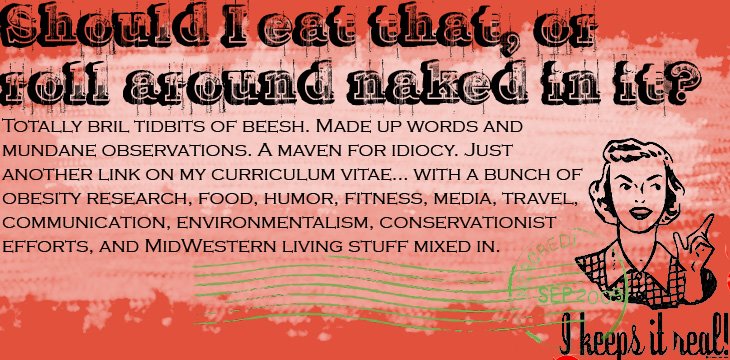
Effing delish. It reminds me of all the summer grilling parties in Mt. P! Anyway, her "secret" was to use Doritos and to make sure not to stir everything together until immediately before eating... which is why my version is also wonderful. Plus I used the low-cal Western dressing. Yes, it's white-trash-tastic.










